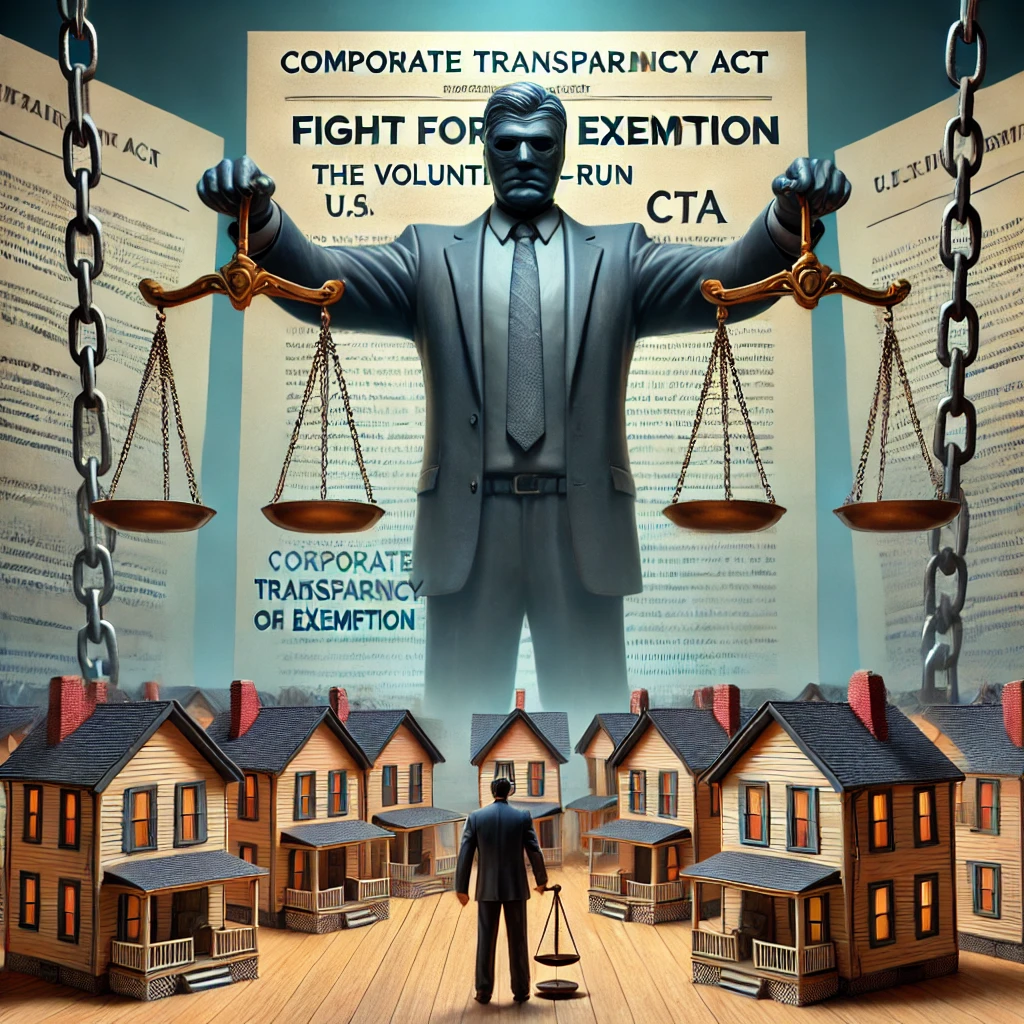
The Community Associations Institute (CAI) has filed a lawsuit against the U.S. Department of Treasury regarding the application of the Corporate Transparency Act (CTA) to community associations. The CTA, originally designed to combat money laundering by requiring corporations to disclose beneficial ownership, inadvertently impacts small community associations such as homeowners’ associations (HOAs). These associations, which are often run by volunteers, would face onerous reporting requirements under the CTA, leading to potential fines and prison time for noncompliance. The CAI argues that the law was not intended for these types of organizations and seeks to exempt them from its provisions. They have also requested preliminary injunctive relief to delay enforcement until the case is resolved.
https://counter.news/the-corporate-transparency-act-a-threat-to-privacy-and-government-overreach/
This legal battle highlights the need for more precise legislation that considers the nuances of different organizations. Community associations are primarily non-profits and operate differently from corporations involved in illicit financial activity. The CAI urges policymakers to revise the CTA to avoid unintended consequences for these associations, suggesting that the focus should remain on high-risk entities involved in money laundering or terrorist financing. Community members are encouraged to stay informed, support the legal fund, and reach out to legislators to advocate for exemptions.
Twitter Information:
- Janet Yellen (Secretary of the Treasury) – Twitter: @SecYellen
Hashtags: #JanetYellen, #USTreasury, #FinancialRegulations, #TransparencyLaw - Tom Skiba (CEO of CAI) – Twitter: Not publicly available, but associated with @CAIsocial
Hashtags: #TomSkiba, #CAILeadership, #CommunityAssociations - FinCEN (Financial Crimes Enforcement Network) – Twitter: @FinCENgov
Hashtags: #FinCEN, #FinancialTransparency, #CorporateDisclosure - Dawn Bauman (Senior Vice President, Government & Public Affairs, CAI) – Twitter: Not publicly available.
Hashtags: #DawnBauman, #CAILawsuit, #CommunityAdvocacy
However, in the hands of a corrupt government, laws like the CTA could be used as a tool for excessive control. By requiring invasive disclosures from small associations and other non-profit entities, the government could impose administrative burdens that suppress civic engagement. This could lead to a chilling effect, discouraging volunteers from participating in community governance due to the fear of legal and financial repercussions. Such overreach would erode trust and give the state more influence over local governance.
The Corporate Transparency Act, part of the Anti-Money Laundering Act of 2020, mandates that any corporation, including community associations with fewer than 20 employees or less than $5 million in revenue, must report beneficial ownership information to FinCEN. Failure to comply could lead to significant fines and imprisonment, even for small entities like HOAs. This law aims to curb financial crimes but has faced criticism for its broad scope, affecting organizations that were never intended to fall under its jurisdiction.



